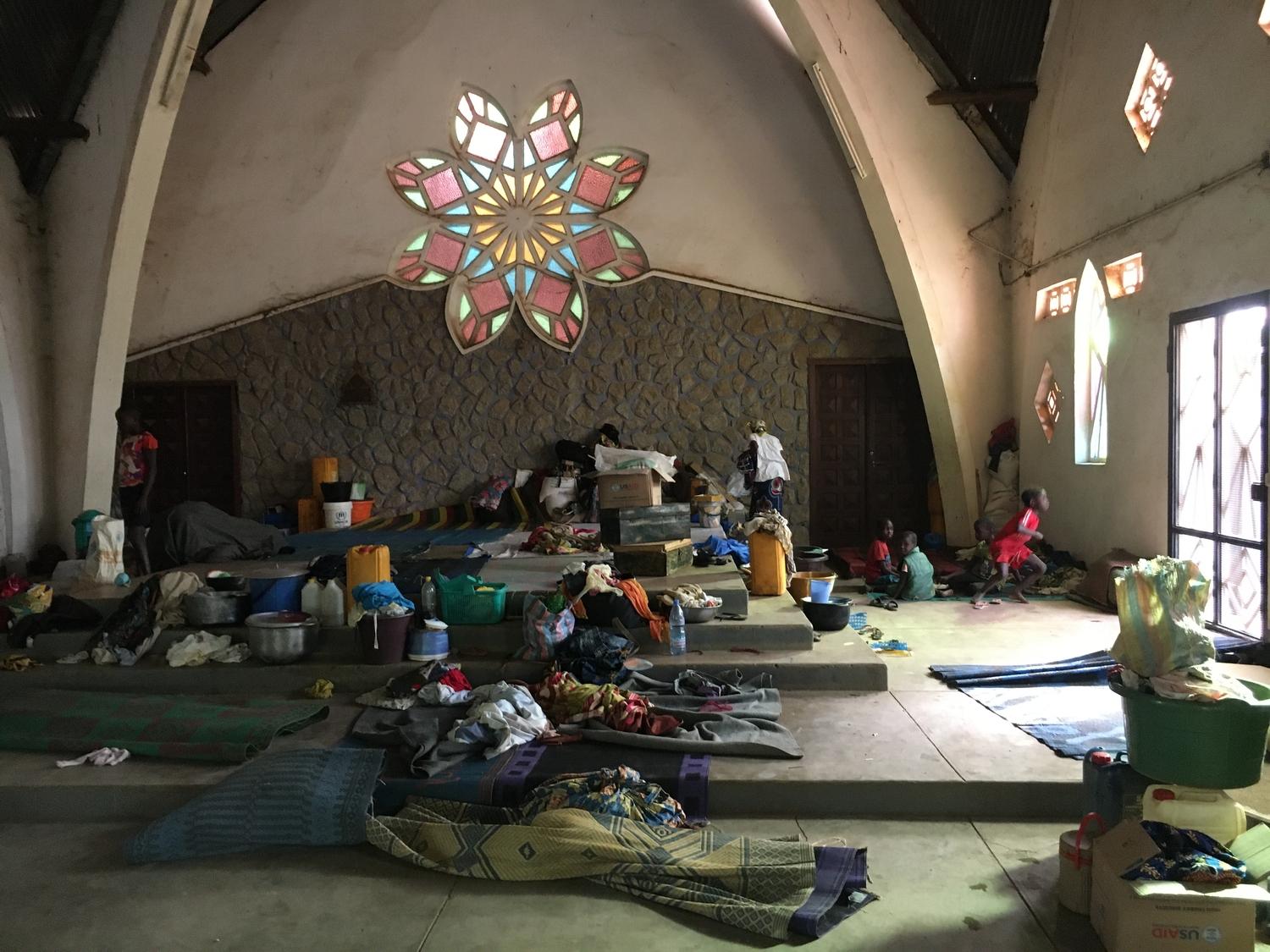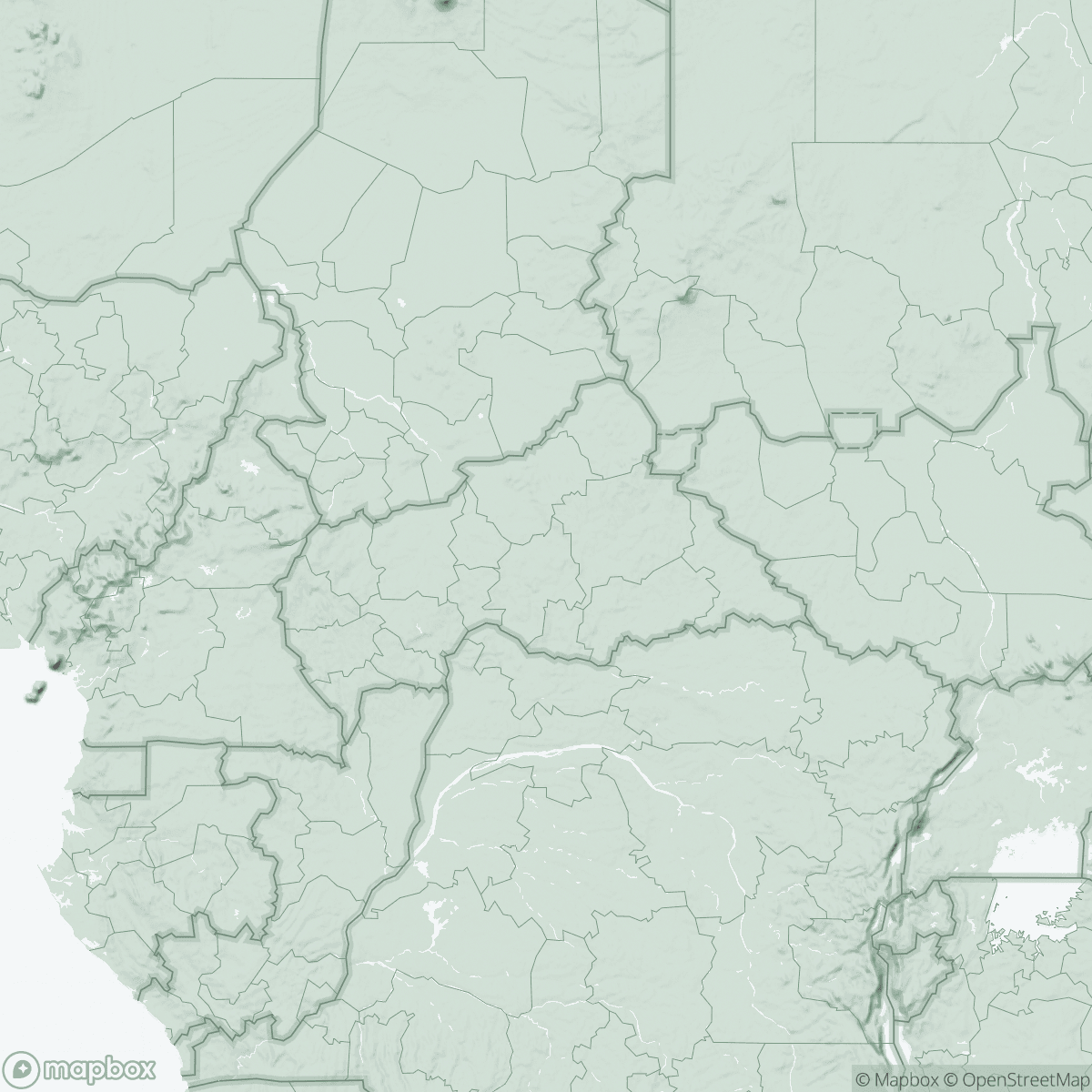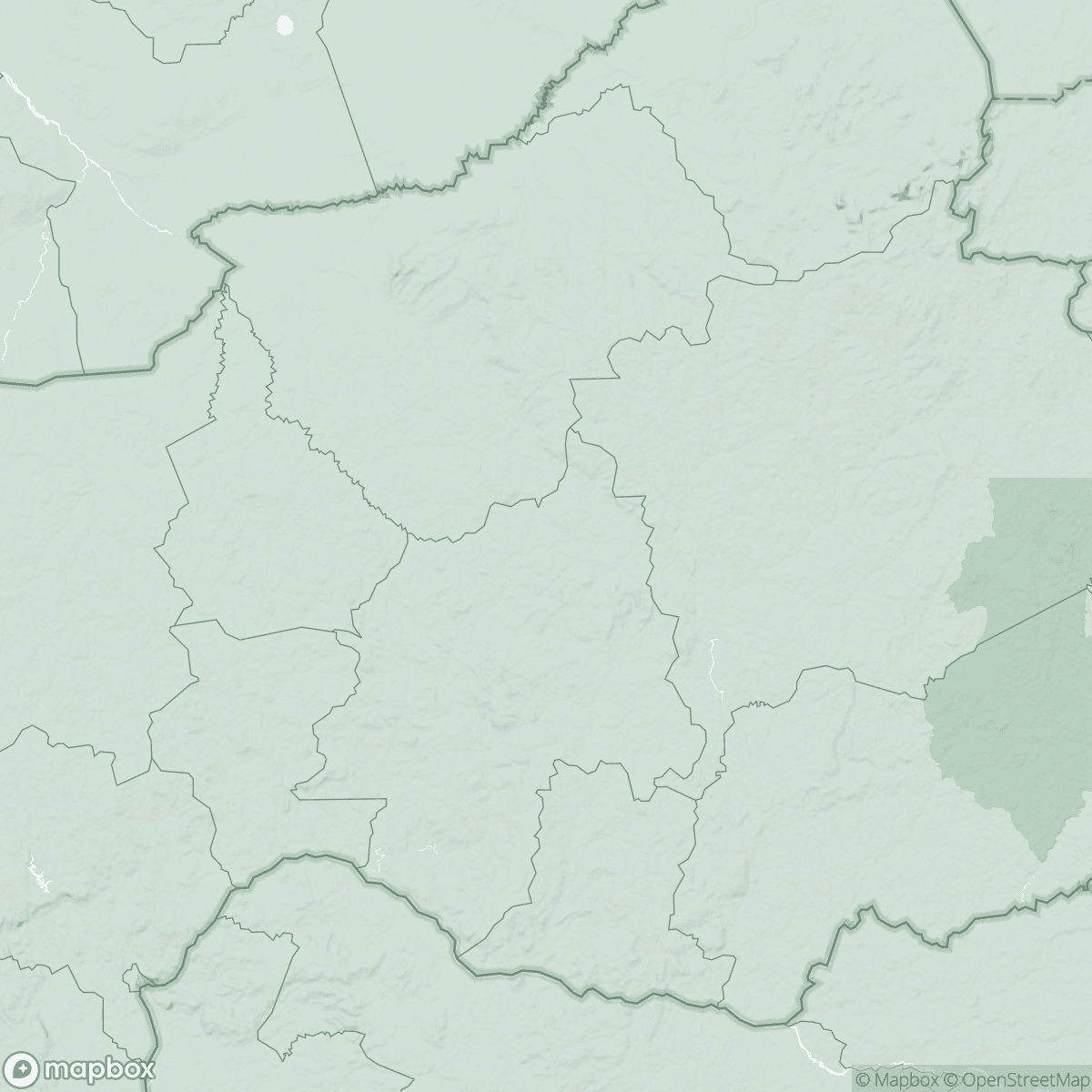
Displaced people in Bouar living amid fear and growing needs
In 1 click, help us spread this information :
The situation is particularly critical for the thousands of people who have fled their homes to take refuge in several religious sites and plots of land in the city, which is located nearly 150 kilometres from the border with Cameroon.
“I don't know where to go because the rebels have set up their base in my neighbourhood,” explains Rolande, a young displaced woman. “It's very difficult to live here with my baby who is just one month old.”
“We sleep outside in the cold without a mosquito net,” she adds. “My child is sick, but I can't take him to the hospital because of the insecurity and I don't have money to pay for the treatment.”
Intense fighting in populated areas leads people to flee
Located on a major supply road to Bangui, the capital, the control of Bouar is quite strategic for the parties to the conflict. On 9 January, armed groups gathered together as the new rebel coalition, Coalition des Patriotes pour le Changement (CPC), attacked positions of the Central African Armed Forces (FACA) and the United Nations Peacekeeping Mission (MINUSCA) in the town. The clashes were intense and took place in densely-populated areas of Bouar. Violent fighting broke out again on 17 January.
Since then, more than 8,000 people, including many families and young children, have been forced to leave their homes. Nearly half of them are currently living in the city's former cathedral, the largest of the six makeshift camps for displaced people, where Médecins Sans Frontières (MSF) has just started emergency activities.
MSF providing water and sanitation, medical care and support
“It is total destitution. The living conditions in the sites hosting internally displaced people are deplorable, particularly due to the lack of sufficient access to water,” says Tristan Le Lonquer, MSF Head of Mission in CAR. “The water network is no longer functional and the few wells accessible in the town are not enough to meet the needs of all the displaced, so there is a real water shortage.”
MSF is setting up water points, building showers and latrines and installing mobile clinics to provide basic health care to all displaced people in need. Since the start of our activities, in addition to the 20,000 litres of water provided per day, our teams have carried out 672 consultations in all displaced people’s sites and referred seven people requiring further medical care to hospital. We have distributed basic necessities kits (non-food items) to 250 families.


